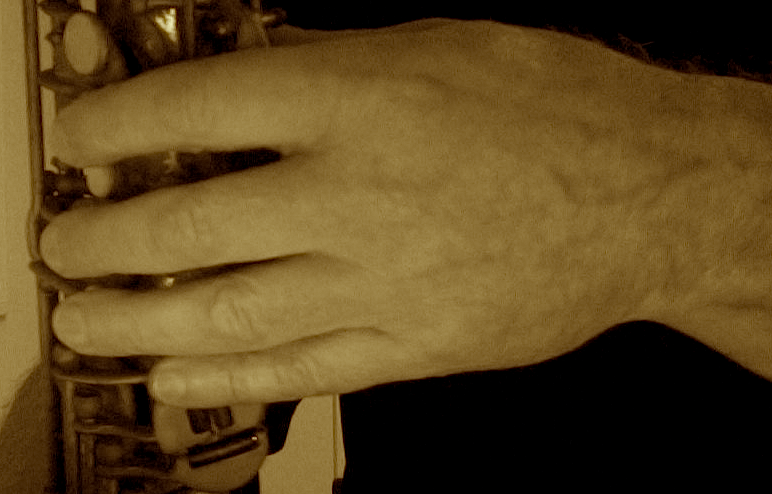The word ‘relax’ can be a very dangerous word for some musicians.
–Karl Snider, singer, voice teacher, Alexander Technique teacher
One of the fundamental benefits of studying the Alexander Technique and applying it to musical performance is in reducing or eliminating misdirected effort.
It is this misdirected effort (manifested through muscular tension) that leads to unnecessary fatigue, compromised coordination and skill (including problems with time/rhythm), and even injury.
My Alexander Technique students learn to play their instruments with far greater ease, efficiency, confidence, consistency and satisfaction than they did before studying the work.
Yet if you asked virtually any of these students (musicians from a large variety of genres) if they are more “relaxed” when they play now, compared to before they started taking Alexander Technique lessons, you might be surprised by their answers:
“I wouldn’t say I’m more ‘relaxed’ when I play now, just that I’m freer to move and respond in a way that is more conducive to playing my instrument the way I want to play it.”
The above is a quote from one of my students, an excellent guitarist here in Los Angeles, who’s been studying and applying the Alexander Technique for a number of years now.
(His response pretty much sums up and concurs with typical responses to this question from just about any of my students.)
If you asked this guitarist if he aims to be “relaxed” when he plays, he’ll answer with a resounding “no.”
Why is that? (you might wonder)
“Because (going again to what my student said) saying I want to be ‘relaxed’ is misleading.”
“First of all, it takes a certain amount of energy and tension to play guitar. Muscles are constantly working when I play. They have to. So it’s impossible to be completely ‘relaxed’ in the way most people think of being relaxed, and certainly in the way that I used to define that state of being.”
“Second, aiming for relaxation can often lead to other problems, like under-energized practice and performance. And before, when I didn’t ‘feel relaxed’ in the way I thought I should, I immediately became anxious, thinking I was doing everything wrong. That would lead me to playing with even less freedom and with more strain.”
As my student discovered, it’s this “feeling wrong” if you don’t think you aren’t as “relaxed as you should be” that often leads to even more misdirected effort.
If we go back to what my student does want in his playing (what he has gained from studying and applying the Alexander Technique), it is more freedom.
Freedom to move lightly but powerfully. Freedom to respond in a constructive way to musical impulse. Freedom to use time more effectively.
Ultimately, freedom to choose.
If you were to ask this student what qualities he now seeks and enjoys when playing guitar, some of the words would be: balance, mobility, ease (not the same as relaxation), flexibility, efficiency, precision, satisfaction.
Freedom instead of relaxation.
And this doesn’t even take into account the psycho-physical state of readiness necessary for actual live performance. So many musicians confuse the heightened state of arousal before and during a performance as “fear”, as something to be avoided at all costs.
While there are certainly some musicians who feel “fearful” about performance, the feeling of “excitation” necessary for optimal performance is too often confused with “fear” by many performers.
That’s unfortunate.
Because great performance is exhilarating. It is magical. It is dynamic. It is alive with energy (and even tension!) It is indeed special.
But it is a far cry from anything anybody would call “relaxed”. In fact, I’d go so far as to say that it is impossible to be relaxed during an authentically expressive musical performance.
So instead of aiming for “feeling relaxed” during a performance, perhaps you can wish for this instead:
To be free, mobile, supported by the ground, appropriately energized, connected (to the music, to the other performers, to the audience), inspired, curious, generous and loving.
And, perhaps…
You can wish for a light, easy upward and outward dynamic expansion throughout your entire body as you play.
You can wish for freely moving breath.
You can wish for an integrated attention, balancing what you think/feel internally, with what you experience externally.
You can wish for allowing yourself to use time to your advantage, never rushing ahead, instead letting the music unfold into its natural, easy rhythm.
You can wish for buoyant, freely flowing energy throughout your entire self.
You can wish to be graciously receptive of the creative impulses moving through you.
You can wish to be graciously receptive of the presence and energy of the audience and the other performers.
You can wish for economy of effort instead of relaxation.
You can wish for clarity and freedom in thought and expression…
What else would you wish for in practice and performance, if you could have anything you want?
